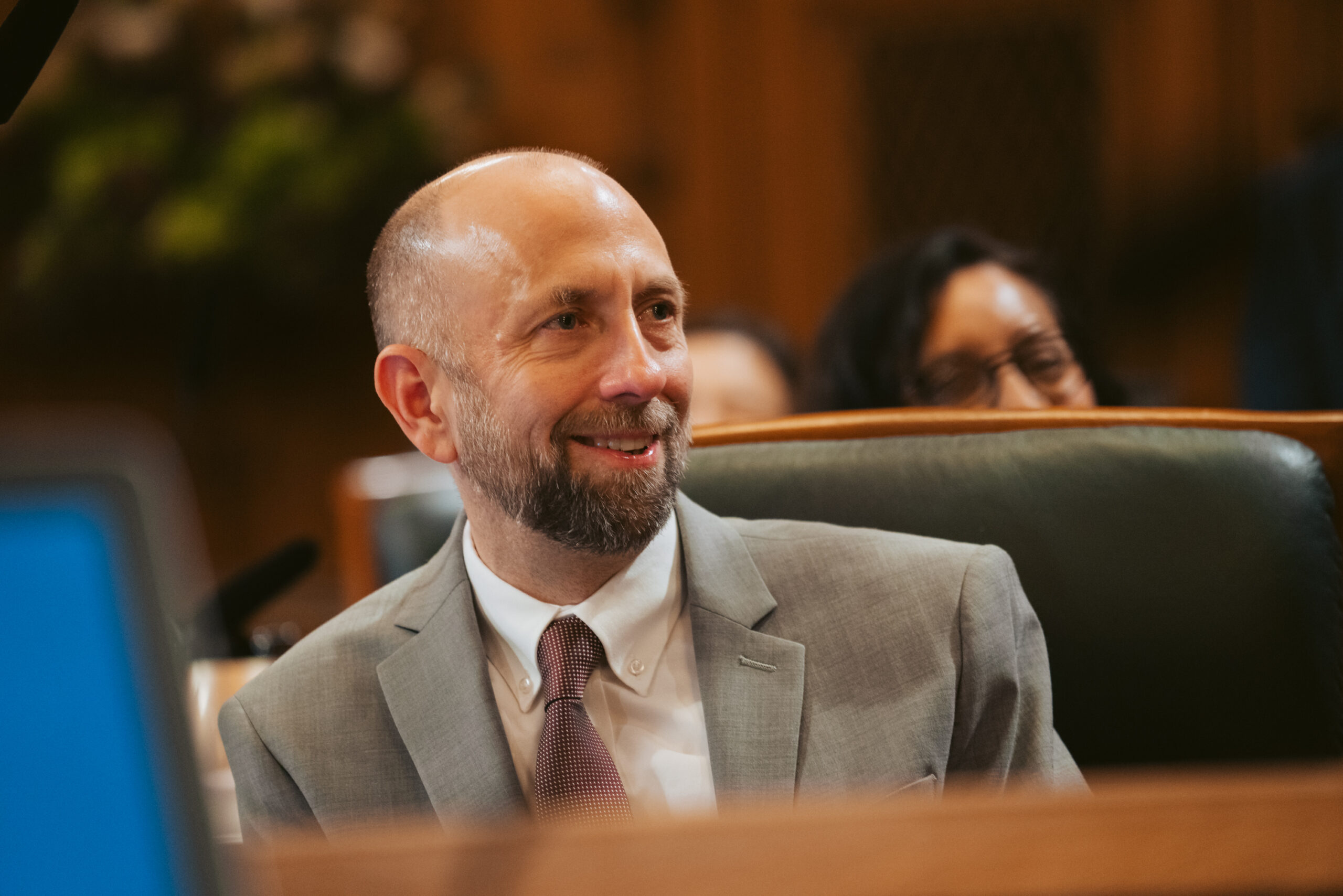A San Francisco politician announced plans Monday to introduce a ballot initiative that would allow eighth graders in public schools to take algebra, a course that is not offered until the ninth grade in the city’s public schools.
The proposal is the latest salvo in California’s long-running math wars, which resurfaced in 2021 with the introduction of a draft of new state math curriculum guidelines that were refined and adopted in 2023. The new framework minimized the importance of calculus in high school and pushed algebra to ninth grade, in addition to other changes aimed at addressing education inequities across the state.
Supervisor Joel Engardio posted on social media saying that the San Francisco Unified School District’s policy unfairly punishes students keen to take algebra on and critiquing curriculums that don’t correctly prepare all students for the course in time.
I’m introducing a ballot measure urging San Francisco’s public schools to let kids take algebra in the 8th grade. We make everyone wait until 9th grade because some kids aren’t ready for algebra sooner. Let’s better prepare all students instead of holding back kids who love math.… pic.twitter.com/LJmKdReJ2C
— Joel Engardio (@JoelEngardio) September 25, 2023
“By delaying algebra, math-loving kids in San Francisco are punished because they won’t be able to take calculus coursework by high school graduation—and this hurts college options,” Engardio said, adding that waitlists and lessons paid out of parents’ pockets limit opportunities.
Taking and passing algebra early on puts students on track to complete calculus by graduation. This is seen as advantageous for college admissions, particularly in high-earning STEM fields, though some admissions officers disagree that omitting calculus limits a student’s college options.
But due to inequities in the state’s school system, not all students are ready to take algebra by eighth grade. That dilemma predominantly affects Black and Latino students in San Francisco, while white and Asian students are more often steered toward accelerated math courses like precalculus.
Consequently, calculus has been de-emphasized in the curriculum, much to the dismay of critics who lament a lack of rigor in schools. At the same time, the University of California system had allowed some types of math classes, like statistics and data science, to be taken in place of Algebra 2, until a faculty committee ruled out data science in July and announced plans to further define courses that qualify as advanced math.
Days after that committee ruling, the state Board of Education approved nearly 1,000 pages of guidance for math instruction with the ambitious, much-contested goal of transforming how math is taught in California, where only a third of students—and one in five low-income students—met standards in the latest state standardized test. That approval arrived after months of deliberation and multiple drafts.
Engardio said he will introduce a non-binding policy declaration for next March’s ballot urging the school district to offer Algebra 1 to students by the eighth grade and develop a math curriculum for students at all grade levels. He noted that the district is already assessing its math curriculum, but said he preferred to give parents and voters a say on the issue, and waved off concerns about a school bond measure set for the same ballot.
“Will voters upset about the lack of 8th grade algebra vote against the school bond? I believe the two measures complement each other,” Engardio said. “Let’s vote yes to fund our schools and let’s also tell the school district we need eighth grade algebra. Both are needed for our public schools to succeed.”
Supervisor Shamann Walton confirmed that he is against the idea, stating that he believes it is a matter for education experts to decide.
The school district continues to face multiple crises including payroll problems, large staffing vacancies, chronic absences and other issues. In response, district leadership has embarked on a listening tour and shaped academic goals with the Board of Education while also working to reshape its central office structure.
Reached for comment Tuesday, Engardio described the policy statement as “an insurance policy” against possible district committee changes, and called the response to his social media post surprising and mostly positive.
“This goes back almost 10 years. Several generations of kids have gone through middle school, and parents who lived through it want to make sure other kids don’t,” said Engardio.
By Tuesday afternooon, Engardio said signatures of support came in from Supervisors Catherine Stefani, Ahsha Safaí, Myrna Melgar and Matt Dorsey. Engardio said he would submit those signatures to the city Department of Elections to guarantee ballot presence, and introduce the measure to the board.
School district spokesperson Laura Dudnick said Tuesday that the district was “committed to our goal of improving student outcomes in eighth grade math, while honoring our community’s values.”
Dudnick said evaluation of district math policy was already underway, part of “a thoughtful process to make comprehensive and strategic adjustments to the district’s math curriculum, including an audit on SFUSD’s math curriculum, so that SFUSD students are set up for success.”
